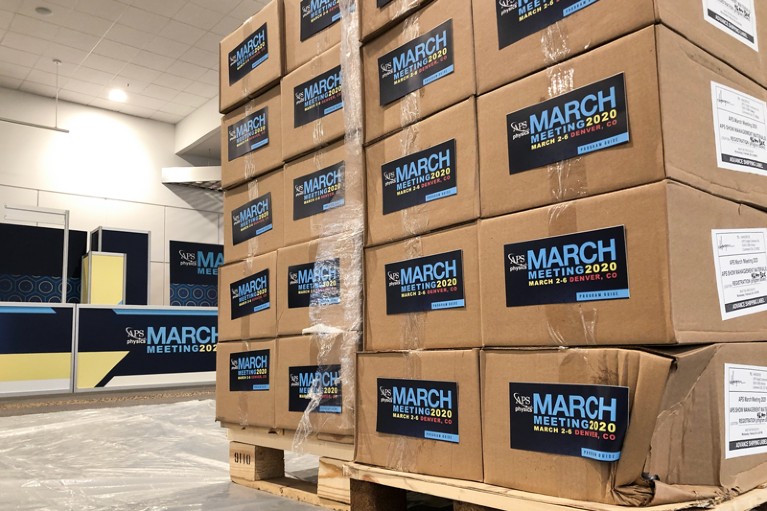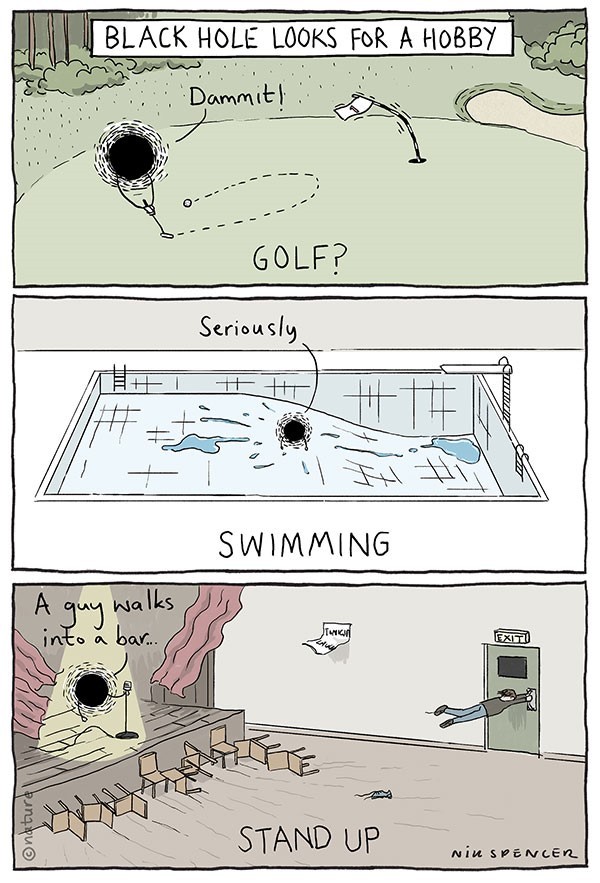Hello Nature readers, would you like to get this Briefing in your inbox free every day? Sign up here

Stacked boxes of conference programmes lie unopened at the cancelled American Physical Society meeting.Credit: Davide Castelvecchi/Nature
World’s biggest physics meeting cancelled
Coronavirus has led to the cancellation of one of the world’s biggest scientific conferences — the March Meeting of the American Physical Society (APS) in Denver, Colorado. More than 11,000 people had been registered to attend the meeting, which was cancelled just 36 hours before it was scheduled to begin today. Organizers were concerned the meeting could contribute to the spread of COVID-19. With many researchers already in town, some would-be attendees are finding ways to share their talks virtually — and some local bars are offering a free drink to stranded physicists.
Climate lawsuits break new legal ground
Last week, a British court blocked plans to build a third runway at Heathrow Airport, saying that the expansion would violate the country’s obligations to the Paris climate agreement. But not all climate litigants are celebrating success: in January, a US court dismissed a significant climate case brought by 21 young people (who plan to appeal). With dozens of cases around the world aiming to spur action on global warming, Nature explores the legal arguments that separate winners from losers.
China bans publishing bonuses
China has announced a national policy to tackle the perverse incentives that drive a ‘publish or perish’ culture. The policy directs institutions to stop paying researchers bonuses for publishing in journals. It also orders them not to promote or recruit researchers solely on the basis of the number of papers they publish, or their citations.
Too much jargon puts people off
Overly technical language in science articles can alienate readers, potentially shutting them out of scientific discussion and knowledge. A study of 650 members of the general public found that jargon-packed paragraphs made topics harder to understand, and discouraged them from finding out more, compared to text that used more familiar words. Adding links to define technical terms didn’t help — better to avoid jargon at all, say the researchers.
Features & opinion
Find the right home for your imaging data set
Repositories let researchers store, share and access the bandwidth-hungry images produced by the life sciences — and maybe even extract new findings. Discover image warehouses including the Electron Microscopy Public Image Archive (EMPIAR), the Image Data Resource (IDR), NeuroData and the Systems Science of Biological Dynamics (SSBD) database.
Free lists of global grants and fellowships
Three searchable databases provide information on grants and fellowships for early career researchers — one for graduate students, one for postdoctoral researchers and one for junior faculty members. The lists are updated monthly by Johns Hopkins University in Baltimore, Maryland. “We had a choice to reserve the information or make it available to everyone,” says engineer Denis Wirtz, the university’s vice-provost for research. “I reminded myself that the university’s mission is knowledge for the world.”
Mae Jemison on Katherine Johnson
Mae Jemison, the first black female astronaut, pays tribute to NASA mathematician Katherine Johnson, who died last week. “Katherine Johnson was a revelation. An inspiration. But she was not a ‘one-off’ to be put on a shelf and admired for her singular genius,” writes Jemison. “She was representative of the deep well of talent and potential that is so often buried by lack of opportunity, access, exposure and expectation for women and particularly women of color in science and technical fields.”
The New York Times | 6 min read
Quirks of Nature

